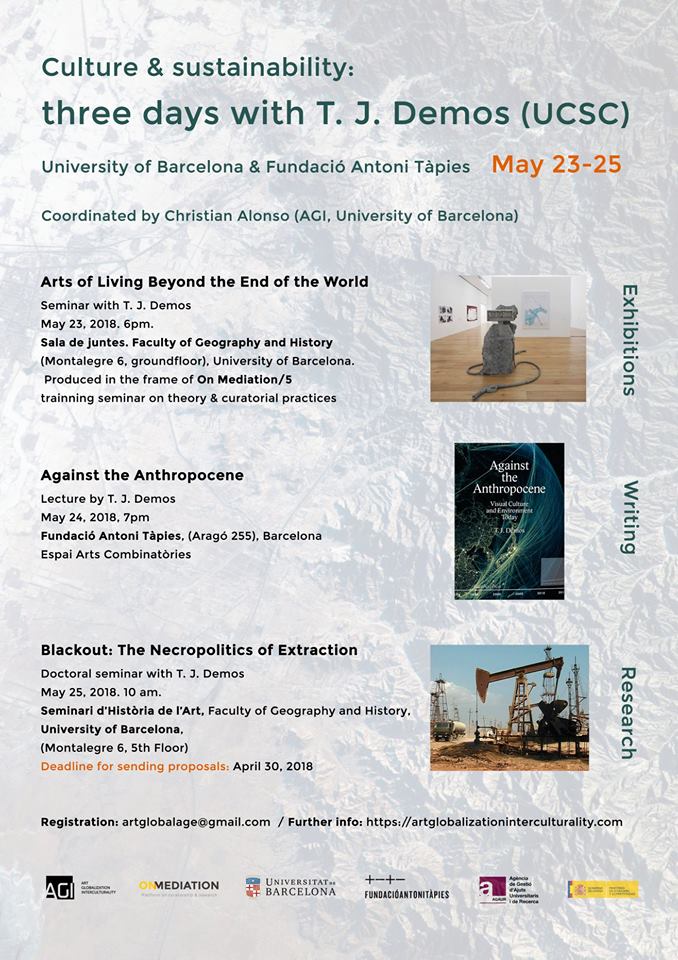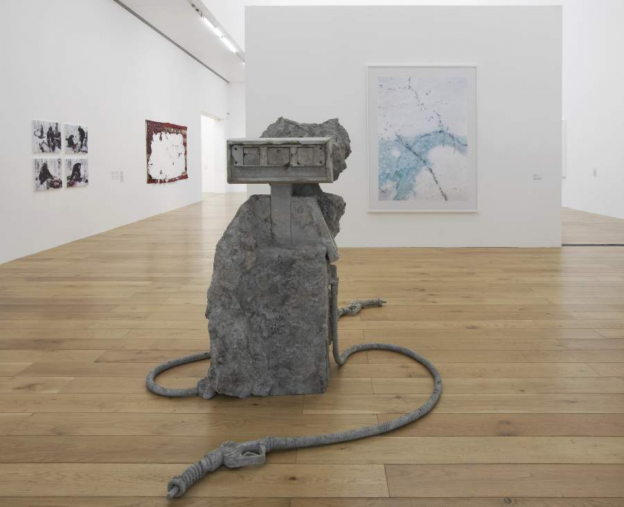Image: Allora & Calzadilla, 2 Hose Petrified Petrol Pump, 2012 (foreground); Subhankar Banerjee Caribou Migration I, 2001 (background).
Arts of Living Beyond the End of the World
Seminar with T. J. Demos
May 23, 2018. 6pm.
Sala de juntes. Faculty of Geography and History (Montalegre 6), University of Barcelona.
Coordinator: Christian Alonso
This seminar will address the possibilities of exhibition-making that inquire into the current prevalence and impasses of end-of-world narratives, and asking what comes next? How can experimental artistic practices offer glimpses and materializations of speculative futurity and alternative worlding during and following the collapse of current forms of life, whether owing to illiberal politics and authoritarian capitalism, world war and nuclear annihilation, and/or climate catastrophe and ecosystem breakdown? What might art exhibitions offer or restrict, catalyze or repress, in our age of apocalyptic populism, where futurity itself, according to theorists, has been slowly canceled, even colonized? What might exhibition-making be as a critical practice in the neoliberal Anthropocene, or, alternately, are art exhibitions and their conventional institutions outmoded by that new geological epoch? We will consider these and other questions in relation to select models of recent art exhibitions, including “Rights of Nature: The Art and Politics of Earth Jurisprudence.”
Suggested reading references:
T. J. Demos, “Rights of Nature: The Art and Politics of Earth Jurisprudence”, Rights of Nature: Art and Ecology of the Americas. Nottingham: Nottingham Contemporary, 2015.
Wendy Brown, “Apocalyptic populism”, Eurozine, 30 August 2017.
Déborah Danowski & Eduardo Viveiros de Castro,“Is There Any Wolrd to Come?”, e-flux Journal, nº 65, October 2015.
This seminar takes place within the framework of the three-day event “Culture & sustainability: three days with T. J. Demos (UCSC), organized by the Research Group Art Globalization Interculturality (AGI, University of Barcelona) and the Antoni Tàpies Foundation.


